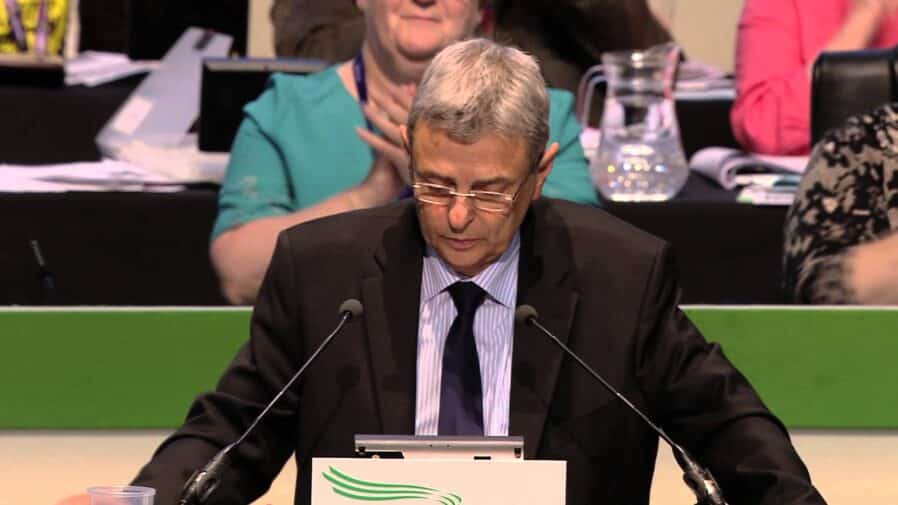

By Jeremy Dewar, Unison rep, pc
Another year, another pay cut. Or so it seems. As we go to press, Britain’s biggest local government union, Unison, is about to close its second consultative ballot (we didn’t give the right answer first time) on the employers’ 2018-19 pay offer.
The offer is atrocious: a real pay cut, probably followed by another round of real job cuts.
A 2% pay rise backdated to this April, with another 2% this time next year represents a real pay cut after inflation. The commonly used Consumer Price Index is currently running at 2.5%; the inflation rate that more accurately reflects working families’ living costs, the Retail Price Index, stubbornly sticks at 3.6%. Not even Mark Carney expects these figures to fall with Brexit looming.
Isn’t the offer weighted in favour of the lower grades? Not really: some of the lowest bands have been abolished but the effect has been to squeeze the increments new entrants can accrue without (very limited chances of) promotion. The steps are so small now, at a couple of hundred pounds a year, that a mouse could stride further. Unlike mice, we can’t live on crumbs.
The whole caboodle is unfunded by the Tory government, meaning councils are already talking about making further cuts to pay for the unbudgeted pay rises. With well over half a million Town Hall jobs gone since 2010, it’s not as if the productivity of the workforce has not merited a pay rise since then, instead of the 21% pay cut we have received. More job losses mean greater exploitation, more stress, higher levels of mental illness.
Capitulation
With this background of built-up resentment you’d think the union bosses would be able to whip up some enthusiasm for a fight this year. After all Philip Hammond tells us the economy is growing – despite the drag caused by falling wages – so now is a good time to win back some of our losses.
Not so. Each of the big three – Unison, GMB and Unite – have played various villainous roles. GMB officials toured the country, lying to members that they would receive 4.9% in the second year. Their reward for this gross deceit was a 94% acceptance of the deal.
In contrast Unison, nominally at least, recommended rejection but, rather than run a rallying campaign, chose to confuse members with charts as long as your arm. A low turn out produced a slim 50.4 – 48.6 majority to reject. Revealing what these consultative ballots are really all about, at least to the right wing bureaucrats who control them, they are now balloting again with a new recommendation – to reject!
How can a bad deal turn into a good deal without changing a jot? By bureaucratic alchemy, that’s how. Activists must fight for as large as possible a “Reject” vote, despite the Easter holidays meaning many parents and school staff will be away, if only to stick two fingers up to Dave Prentis and Heather Wakefield.
But don’t worry. In case it all goes horribly wrong for Unison, Unite officials have it covered. They won a 75% majority to reject the offer. So they’ll move on to a strike ballot, right? Wrong.
A mealy mouthed memo slipped out at the end of March to branch secretaries (not released to the press or on their website), which informed members that, contrary to the rules of mathematics, 75% “did not give an overriding mandate to progress to a ballot for industrial action”.
Instead a far more juicy prospect was in store; they would “develop a strategy for a continuous member facing campaign that will include but not be limited to pay, conditions, funding and organising”. In short, they would do nothing.
Never give up
It is tempting to witness all this and simply resign oneself to fate. But that’s not an option. Next month the food bills, the energy bills, the council tax (which will rise by up to 6% this year) still have to be paid. And we still have to go to work to do that. So the fight goes on.
Clearly our respective “leaders” know how to coordinate their roles – like some middle class parlour game. The rank and file must do the same.
We all need a pay rise – teaching assistants, hospital porters, courtroom clerks. We may be represented by different unions, in different parts of the public sector, but we all face the same enemy: the Tory government. It’s still not too late to form a public sector alliance to stop the cuts, prevent privatisation and fight for fairer funding.
If branches and regions in favour of such a strategy coordinate now, we could use the 12 May TUC demo to launch the alliance: don’t wait for Labour, take on the Tories now.